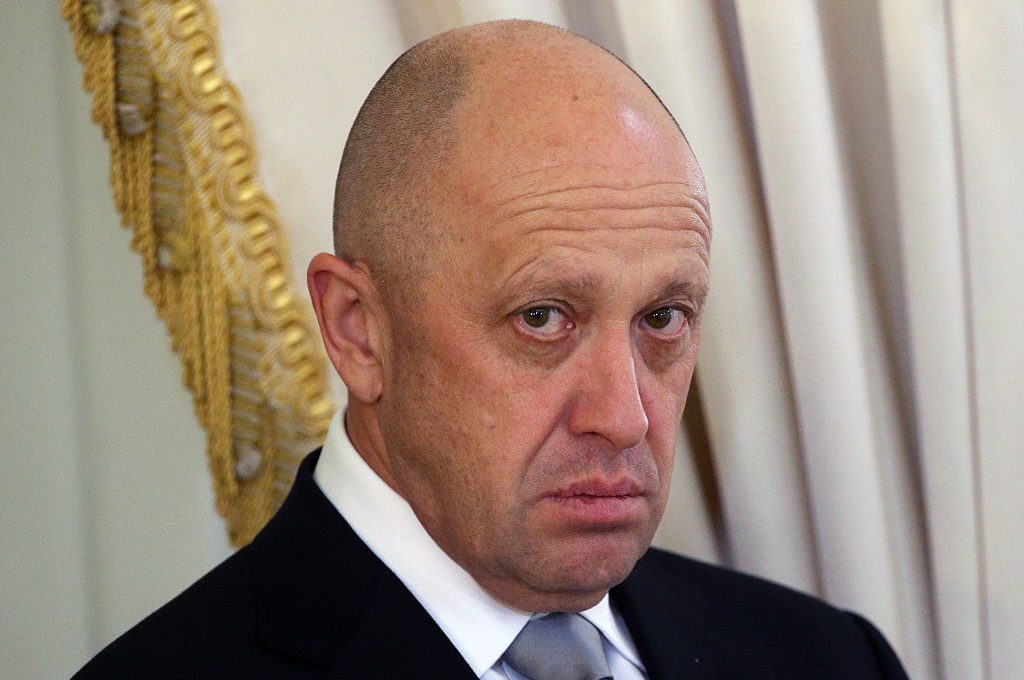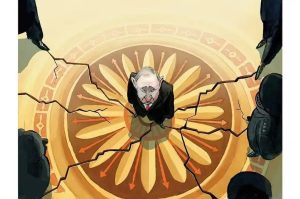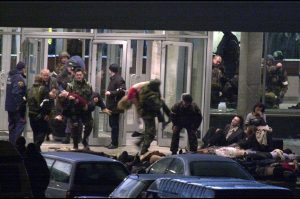It took a characteristically long time for Vladimir Putin to respond to the coup-that-dare-not-speak-its-name launched by Yevgeny Prigozhin, but when his statement came, it was steeped in bitterness. And no wonder, for Prigozhin was essentially Putin’s creation, and we know that Putin’s greatest venom is reserved for those he considers traitors.
An ex-con who moved into the hot dog business and then finer dining options, Prigozhin’s early restaurant business in 1990s St. Petersburg was given a dramatic boost by the patronage of the deputy mayor, one Vladimir Putin. Prigozhin’s Concord business group expanded dramatically, moving first into supermarkets, then everything from real estate to advertising, but almost always on the back of sweetheart contracts from the government once Putin was president.
It is not that he was ever a friend or close confidant of the president. Rather, he became one of the Kremlin’s go-to businesspeople, ready to do whatever needed doing, for a fat fee. This is why he ended up running the infamous Internet Research Agency that did its best to meddle in the 2016 US presidential elections and then the Wagner mercenary group. Deniability and a degree of thuggish managerial verve was what he offered, and the Kremlin was buying.
His then-undeclared role with Wagner, though, was what set him on a collision course with not just defense minister Sergei Shoigu but the whole Putin regime. He may claim that “this is not a coup” but a “march for justice,” but by seeking to impose his own will on the government, by threatening to “take down everyone you send against us” and then to assert that he and his men are “patriots” who no longer wanted to live “under corruption, lies and bureaucracy,” he is throwing down a gauntlet to the whole system.
Hence Putin’s anger. He has a particular and abiding hatred of those he considers traitors, to the Motherland but also more specifically to himself. Oligarchs turned critics such as Mikhail Khodorkovsky or Boris Berezovsky have faced prison or worse. He has sent assassins after former intelligence and security officers such as Alexander Litvinenko or Sergei Skripal. Indeed, part of the passion with which he prosecutes his war with Ukraine is precisely because of the way that, in his own warped pseudo-historical worldview, he feels the whole nation has “betrayed” Russia.
He has a particular and abiding hatred of those he considers traitors, to the Motherland but also more specifically to himself
Prigozhin owes everything to Putin, and now, out of “exorbitant ambition and personal interest,” he has now turned against him. Like Dr. Frankenstein and his monster, the creator is now locked in a struggle with his creation.
Beneath the anger there must also be fear, though. Putin’s regime will likely quell this rebellion. It is more than 600 miles from Rostov-on-Don to Moscow, and although Prigozhin has claimed he has 25,000 men, the reality is probably closer to 10,000. He has some tanks, a certain amount of fuel, but limited artillery or air defense.
So far, there have not been serious clashes, and to a large degree this likely reflects a reluctance on anyone’s part to act against Wagner without direct orders from above. That may now change. The authorities would presumably prefer to besiege Prigozhin than to try and dislodge his forces from Rostov-on-Don and Voronezh, the two cities they control so far. Nonetheless, unless there are massive defections from the security forces, or at least a refusal to obey orders to move against Wagner, ultimately Moscow will win.
At what cost to the regime, though? Putin made Prigozhin; Putin failed seriously to address the escalating confrontation with Shoigu for months; Putin took twenty-four hours even to respond to this challenge. This is not just a failure of his divide-and-rule model of managing the elite, it is also a very personal failure of his, and the damage this does to his legitimacy and the unity and morale of the security forces will be serious, lasting and, potentially, crucial one day.
This article was originally published on The Spectator’s UK website.

























